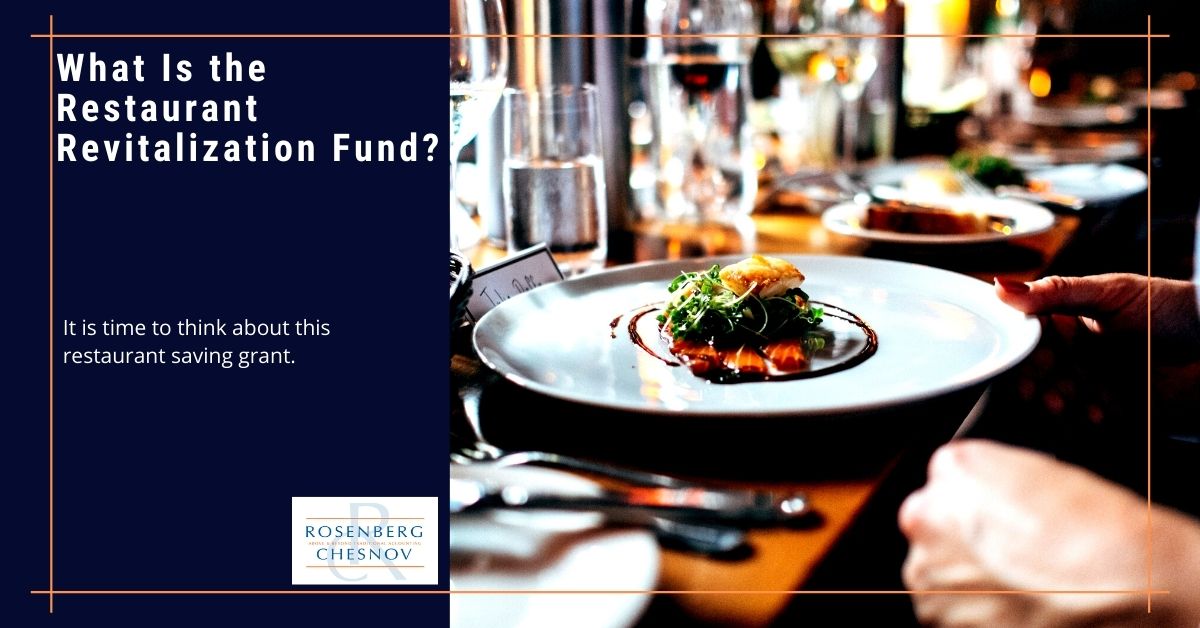

What does the Advance Child Tax Credit mean for you?
Category: COVID-19
One question that has surfaced a lot lately is “should I reopen,” especially restaurants, service business, nail salons, are thinking about whether this is the right move.
This is a multifaceted question:
The first consideration is whether you should open for health reasons. COVID-19 is a risk, and we all have to manage the opening process carefully. Generally, if we follow the rules and open carefully, staying as safe as possible, then opening is a responsible thing to do.
In the end, this is a decision you have to make for you and your customers/clients.
If you do decide to open, then you may face capacity constraints, and that is where finance and economics kick in. If you can only have 25% or 50% occupancy, or if you can only serve a fraction of your customers, does it make sense to open?
There is an economic model to help think that through, it is called the shutdown rule, which I explain below.
This post starts with the half capacity dilemma, that outlines the challenge. I cover fixed versus variable costs and go into the shutdown rule. There are some caveats, what if fixed costs aren’t fixed and whether or not you should pay yourself. And then there is the strategic question: should you open anyway?


Here is the typical dilemma: imagine you own a barbershop.
You pay a haircutter $25 an hour to cut hair; they do two haircuts an hour at $30 per haircut.
After an hour, you end up with $60 in revenue minus the $25 you spent on labor, so $35. Out of that amount, you pay the rent, and yourself. Assume that the rent here is $20 and you pay yourself $15.
Due to COVID, as you reopen, you can only open up at half capacity so you only serve one person every hour.
Instead of two haircuts at $30, you have one.
But you still have the extra $20 in rent, and you’d ideally like to make some money in the process as well. Should you open?
Fixed costs are those things that do not change based on the amount of work you do. Rent is a perfect example. Other overhead expenses fit into this category as well. You might treat marketing as a fixed cost or owners pay as a fixed cost: they don’t vary based on the amount of activity on a day to day basis.
In this example, let’s say rent is a fixed cost; you pay it no matter what.
Also, your pay is a fixed cost (more on that below). You can choose not to pay this cost, but it doesn’t vary based directly on the amount of work.
Variable costs are costs that do change based on use. These are costs that you must incur to deliver the service, and the more service you provide, the more of these costs you will incur. Labor is a typical variable cost. Any consumables can be variable as well.
In the barbershop example, the amount paid to the haircutter is the variable cost.
When you are thinking about whether you should open or not, start by defining your variable and fixed costs.
In simple terms, the shutdown rule says that you should operate, or open if you cover the variable cost of delivering the service, even if you don’t cover the full fixed cost.
This calculation is counterintuitive for most entrepreneurs who focus, correctly, on making money. Still, it is essential in times like these when you can only operate at a fraction of your capacity.
In the barbershop example, the variable cost is the amount you pay the haircutter: $25 an hour.
You still have to pay the rent, which we have assumed to be worth $20 an hour, and you owe yourself $15, so that is a fixed cost of $35.
But your revenue is only $30. You cover the $25 cost of delivering the service, but don’t come close to covering rent or paying yourself.
However, since you cover the variable cost and have some money left over, that remaining amount is contributing to paying the rent and yourself. This is called your contribution margin. In this case, it isn’t much, but it does contribute, it helps. $5 is better than none.
So, when the revenue exceeds the variable cost of delivering the service, you should open.
If, on the other hand, you can’t even pay for the variable cost: you only bring in $20 an hour but have to pay $25 an hour, then you should not open.
Rent is generally fixed – you have to pay it no matter what. However, we have seen some cases where people have been able to negotiate a reduction in rent because they can’t use it. If they start using the space again, rent goes back up.
If your rent changes as a result of you opening, you should consider the additional cost of rent, the increase, as a variable expense.
If, in the example above, imagined you had negotiated a 50% discount on rent because you were unable to use the space. However, the rent would pop back up to 100% when you open.
In this case, opening wouldn’t make financial sense.
That is because your variable cost is now not just the $25 you pay the haircutter but also the additional $10 in rent. Your variable cost becomes $35, and you are only earning $30 in revenue. Y
This also brings up the caveat that even fixed costs are variable in the long run. Anything can be adjusted or negotiated. Look at your list of fixed costs and think about whether it is truly fixed or if you can reduce it or change it somehow.
In this example, your pay is a fixed cost. You do have the option to negotiate with yourself, and this is one negotiation where you can determine the result.
You can decide not to pay yourself. This may make sense in the short-term. If you are working on surviving today, keeping your business going now no matter what, so that you can thrive and grow tomorrow, it makes sense to reduce your pay.
But be careful about reducing your pay indefinitely or making changes, such as lowering your prices, that will limit your ability to pay yourself in the future.
Entrepreneurs have the bad habit of putting themselves last. That makes delivering for the business and serving customers very difficult. If you can’t take care of yourself, you can’t take care of others. So be sure to balance the strategic need with reality.
A permanently unprofitable business is not valuable at all, and you’d be better off shutting it down altogether.
The final piece to consider is that it may make sense to open today even if you cannot cover your variable costs for marketing and strategic reasons.
It might make sense to open today even if you can’t cover your variable costs. If your customers want or need your service, they will value you being there for them. If you aren’t there, they may look elsewhere, and you lose them for the long term.
Another consideration is that if others are closed, and you are the only one offering the service, this may help you build your reputation.
In this case, think about the cost of acquiring new customers versus the cost of opening. It may be worth the investment to be open to retain and attract new customers.
This is where something like the EIDL loan or PPP loan can help: these help you reduce your fixed costs and even some of your variable costs so that you can stay open and be ready for tomorrow (or next year).
The general rule is if you can cover your variable costs, you should open. Improve your profitability by reducing fixed costs as much as possible, realizing that over time every cost is variable.
For strategic reasons, you may decide to open even if you do not cover all of your variable costs. Use the PPP and EIDL loans to help cover the costs. Do this to be ready for the future when you can grow to full capacity and return to full profitability.


Category: COVID-19


Category: COVID-19


Category: Accounting
Send us a message and we will contact you as soon as possible.
Jeff Coyle, CPA, Partner of Rosenberg Chesnov, has been with the firm since 2015. He joined the firm after 20 years of business and accounting experience where he learned the value of accurate reporting, using financial information as a basis for good business decisions and the importance of accounting for management.
He is a diligent financial professional, able to manage the details and turn them into relevant business leading information. He has a strong financial background in construction, technology, consulting services and risk management. He also knows what it takes to create organizations having built teams, grown companies and designed processes for financial analysis and reporting.
His business experience includes:
Creating and preparing financial reporting, budgeting and forecasting.
Planning and preparation of GAAP and other basis financial statements.
Providing insight on financial results and providing advice based on those results.
Jeff also has a long history of helping individuals manage their taxes and plan their finances including:
Income tax planning and strategy.
Filing quarterly and annual taxes.
Audit support.
General financial and planning advice.
Prior to joining the firm in 2015, Jeff was in the private sector where he held senior financial and management positions including Controller and Chief Financial Officer. He has experience across industries, including construction, technology and professional services which gives him a deep understanding of business.
Jeff graduated from Montclair State University, he is a CPA and member of the American Institute of Certified Public Accountants, New York State Society of Certified Public Accountants and New Jersey State Society of Public Accountants.
Jody H. Chesnov, CPA, Managing Partner of Rosenberg Chesnov, has been with the firm since 2004. After a career of public accounting and general management, Jody knows the value of good financials. Clarity, decision making, and strategy all start with the facts – Jody has been revealing the facts and turning them into good business results for more than three decades.
He takes a pragmatic approach to accounting, finance and business. His work has supported many companies on their path to growth, including helping them find investors, manage scaling and overcome hurdles. His experience and passion for business reach beyond accounting and he helps businesses focus on what the numbers mean organizationally, operationally and financially.
He has a particular expertise in early-stage growth companies. His strengths lie in cutting through the noise to come up with useful, out of the box, solutions that support clients in building their businesses and realizing their larger visions.
Prior to joining the firm in 2004, Jody was in the private sector where he held senior financial and management positions including General Manager, Chief Financial Officer and Controller. He has experience across industries, which gives him a deep understanding of business.
Jody graduated with a BBA in Accounting from Baruch College, he is a CPA and member of the American Institute of Certified Public Accountants and New York State Society of Certified Public Accountants.
In addition to delivering above and beyond accounting results, Jody is a member of the NYSCPA’s Emerging Tech Entrepreneurial Committee (ETEC), Private Equity and Venture Capital Committee and Family Office Committee.
He is an angel investor through the Westchester Angels, and has served as an advisor for many startup companies and as a mentor through the Founders Institute.